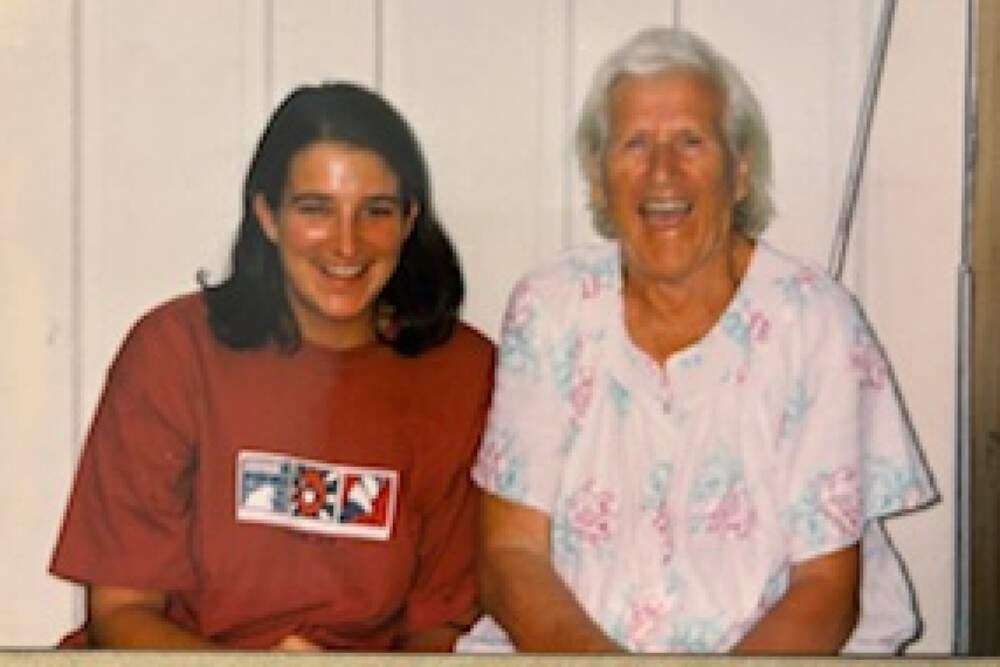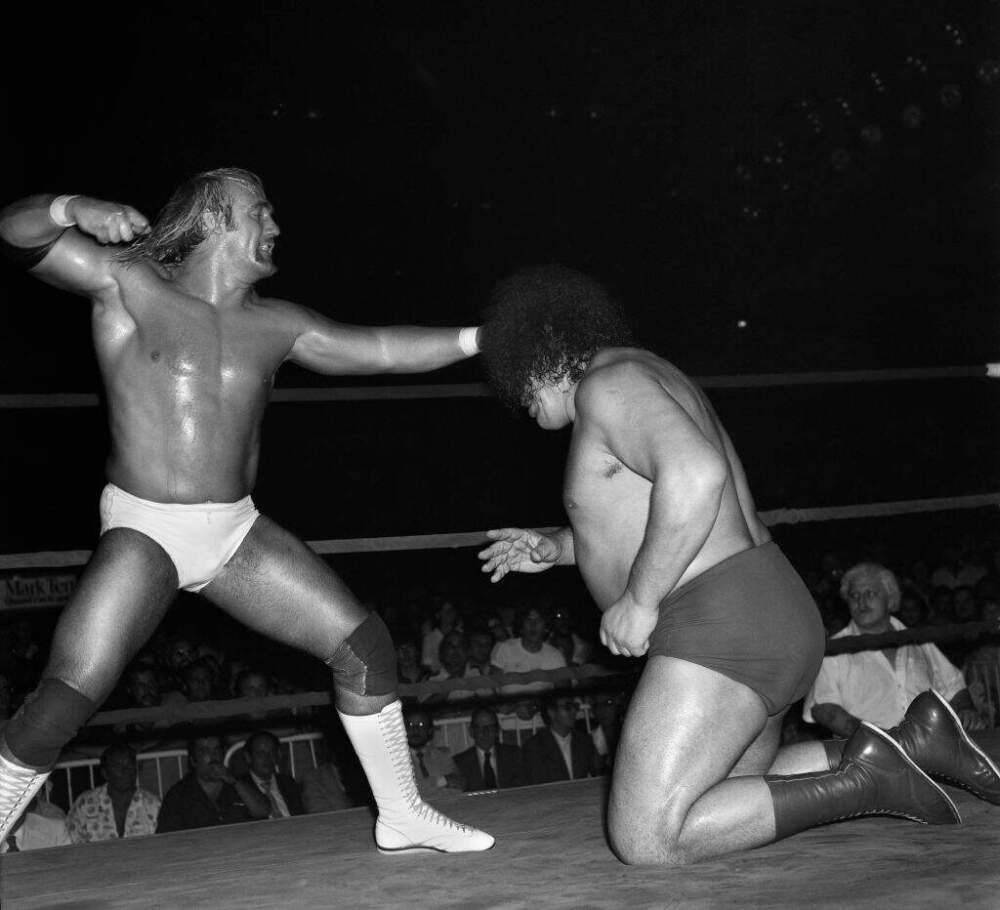Advertisement
Essay
Saturdays with my grandmother, and Hulk Hogan

One day a few years ago, my son wandered into the kitchen, reading from his “WWE Superstar Handbook.”
“Guess which wrestler’s signature move was the leg drop?” he asked. Without skipping a beat, I responded: “Hulk Hogan.”
He looked up, stunned, his eyes wide and mouth open. He had no idea his mother was a Hulkamaniac.
My wrestling knowledge comes from an unlikely source: my immigrant grandmother. She introduced me to wrestling when I was a kid, which wasn’t hard because we all lived together — my grandparents, parents, siblings and aunt. My grandmother died long before my sons were born. To them, she is little more than a face in a frame. To me, she was everything — unconditional love in a floral housecoat.

My grandmother’s English wasn’t great, and I didn’t speak Polish, so our closeness didn’t come from deep conversations. Instead, our bond was forged in the living room on Saturday mornings when we watched WWF (now WWE) wrestling. We jeered at the villains (known as “heels”), like King Kong Bundy and Andre the Giant. I learned Polish curse words because she hurled them at Nikolai Volkoff, the Croatian-American who played a Soviet heel and formed a tag team with The Iron Sheik. Before each match, Volkoff swiped the microphone to sing the national anthem of the Soviet Union. It was the 1980s — the Cold War was still frigid — and the fans booed this blatant disrespect for America, no one louder than my Polish immigrant grandmother, who practically spat at the TV.
My grandmother and I didn’t just share a love of wrestling; we shared a hero. My grandmother’s round face lit up when Hulk Hogan appeared in bright yellow wrestling shorts that matched his stringy blond hair and mustache. His bulging, well-oiled biceps on full display, he swaggered into the ring to the lyrics of “Real American” blaring over the crowd noise: “I am a real American. Fight for the rights of every man.” My grandmother used her thick calves and callused feet to scoot forward in her chair, eager for another Hulk Hogan victory.
Advertisement
Decades after my grandmother died, my boys and I watched wrestling together. After we watched a modern-day match, I’d queue up a classic, like the 1987 showdown where Hulk Hogan body slammed all 500-ish pounds of Andre the Giant during WrestleMania III.
“No one had ever body slammed the Giant before,” I explained to my boys. “When Hulk Hogan lifted him over his head, my grandma and I jumped up and started screaming!” They don’t totally get the importance of this moment in wrestling history — or the bond that Hulk Hogan helped forge between my immigrant grandmother and me.
Still, watching wrestling with them became a way for my boys to get to know the great-grandmother they never met. I told them about her affinity for Polish-American wrestlers Killer Kowalski and Ivan Putski and about her childhood in Rzadka Wola. How she was captured by Nazi soldiers one day on her way to church and never saw her parents again. I recounted what I know about her journey from Poland to Austria, then Germany, where she gave birth to my father in a camp for displaced persons after World War II.
I explained that each time Hulk Hogan flung his opponent into the ropes or put him in a headlock, we cheered. But while I was cheering for Hulk Hogan, my grandmother was cheering for something bigger. She was cheering for her adopted homeland, for freedom and safety, for the simple pleasure of watching TV with her granddaughter. Hulk Hogan gave her a sense of patriotism and pride in rooting for the good guy.

When I learned of Hulk Hogan’s death, I didn’t want to think about his complicated legacy, his support for Donald Trump, or just how much patriotism and our country’s relationship with Russia has changed since I was a kid. Instead, I thought of my grandmother and how she cooked on a boat to earn her passage to America. How she disembarked at Ellis Island with her husband and kids, how she didn’t know any English but made it to Hell’s Kitchen, found work, raised a family, and eventually ended up on a couch in New Jersey, rooting for the Hulkster with her granddaughter.
Hulk Hogan was a fixture of my childhood but, as it turned out, my hero wasn’t body slamming other wrestlers on TV on Saturday morning. She was sitting next to me, rooting for the good guy like a real American.
Follow Cog on Facebook and Instagram. And sign up for our newsletter, sent on Sundays. We share stories that remind you we're all part of something bigger.

